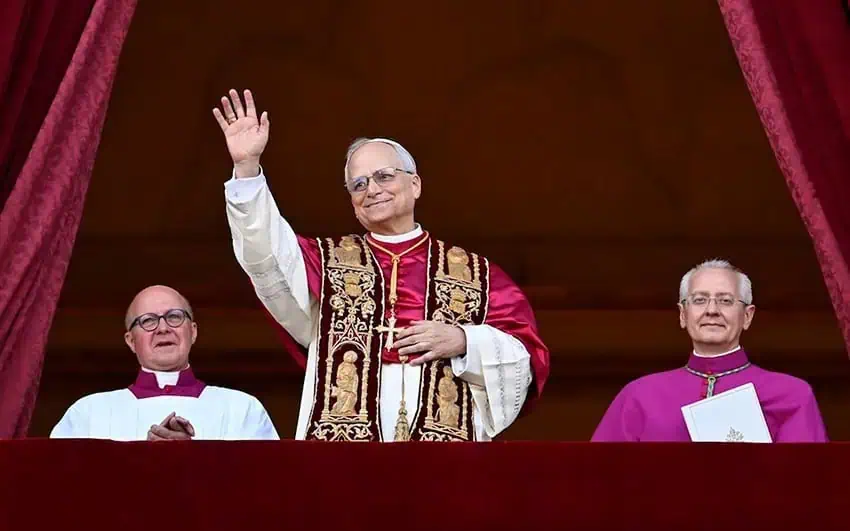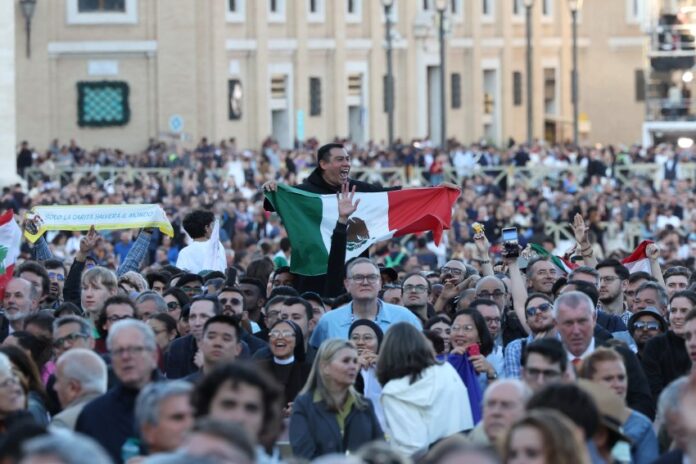I am not really a religious person. I followed, predictably, the sociological trajectory of many people who attend liberal churches as kids. They grow and become more educated, which leads them inevitably to identify as “agnostic.”
If you’re like me, you were snarky about it at first. When I was fresh out of college, I’d openly roll my eyes at any kind of religious displays. I watched and rewatched Bill Maher’s “Religulous“ and Ricky Gervais’ “The Invention of Lying,” which I still count as excellent movies.
Comedian Bill Maher’s film Religulous was part of the writer’s journey toward agnosticism.
Faith and belief, I thought, were for suckers, and those who promoted them were being dishonest. What did I think religion was? The opium of the masses, the sigh of the oppressed creature, to quote Marx a couple of times. It was also a convenient system for keeping women subservient to men — for the record, I still think this.
But as the years have passed, my views have softened, as has the veil that lies between what I say I believe and how I actually behave.
In the end, my ethics are indeed the product of the Judeo-Christian worldview and upbringing, no matter how many times I may have rolled my eyes. These can be summarized pretty easily:
- Love justice and your neighbor.
- Help those less fortunate than you, even when everyone else gives them the stinkeye.
- Turn the other cheek.
- Treat others the way you’d like to be treated.
- There is no greater show of love and devotion than sacrifice.
You don’t have to be Christian to be a good Christian, especially given there’s so much overlap among the world’s major religions — as well as basic humanist ethics.
A very particular strain of liberation theology has stuck with me — and, apparently, with the new pope, which makes me happy.

Now that I’ve grown even older, I lean a bit closer to Emile Durkheim‘s views on religion than to Karl Marx’s. Religion serves some important social functions, independent of actual belief.
The church is an important institution. At its best, it’s a true community, an extended family, a support group of people with shared values. It can provide meaning and purpose and be a source of feelings of true belonging. Without it, it’s easy for people to feel unmoored from each other.
That said, I am not part of a church. When I go home to Texas, I attend the Unitarian services when I can. It’s a nice community and a place where you go, feel welcome and aren’t expected to spend money. I joke that the Unitarian Church is the ideal religious home for agnostics: It serves the social purpose of a church without the dogma.
In my city, there is no Unitarian church. I occasionally go to Mass with my partner, though, a devout Catholic. The priest has never wowed me with his sermons, but I listen anyway and like being around people.
I also love watching all the gestures of the worshippers — crossing themselves and kissing their thumbs in a dizzying array of combinations. Having never attended catechism classes, I don’t know them myself, but who knows? Maybe I’ll learn eventually.
Though I’m not Catholic — or much of a believer at all — I recognize the importance the Church holds in Mexico. Its ceremonies and rites of passage mark important moments of people’s lives: baptisms, first communions, weddings, funerals, even pilgrimages. In an increasingly agnostic world, close to 80% of Mexicans say they’re Catholic. After Brazil, Mexico has the world’s greatest number of practicing Catholics.
So the election of a new pope is a big deal for practicing Catholics. Much to the world’s surprise, he’s American — a first.
But there’s an important asterisk next to “American.” While Robert Francis Prevost grew up in Chicago, he spent much of his adult life in Peru and became a Peruvian citizen.
In that sense, I’d count him as “American” in the most expansive meaning of the word: a citizen of “the Americas,” not just the United States. The fact that a man who might represent both the U.S. and Latin America was surely a consideration in his election. He was a great choice.
It also makes me feel a kind of kinship with him. We both grew up in the States but have made our lives in Latin America, adopting the language and many aspects of the culture. Many of you, readers, have done the same. While we claim the United States as our own, we also claim Latin America. It is also our home, also part of who we are.
Robert Prevost giving his last media interview in Peru in 2023 as the archbishop of Chiclayo. He is speaking about Peru’s challenges in the aftermath of anti-government protests following the ouster of then-president Pedro Castillo. He called for peace and reconciliation.
Pope Leo XIV, when he addressed the public in St. Peter’s Square for the first time, did so in Italian. He said a few things in Spanish too — a special saludo to his Peruvian faithful, where he was the archbishop of Chiclayo. He did not speak in English. That is okay, and that is also telling. It was a message: “The U.S. may get special consideration for all kinds of other things, but not for this. In this case, it’s not more special than anyone else.”
So far, this new pope seems a lot like the old pope: unafraid to confront injustice and happy to stand up for those less fortunate, even if they’re not Catholics, or even Christians. His views seem to hew closely to liberation theology, as do my own.
Me and Bob do not agree on everything, I’m certain. But that’s all right. Though the dynamics of social media might have us think otherwise, you don’t have to agree on all the same things in order to respect or get along with another person, or wish them well.
For now, I’m just happy we seem to have gotten a good one: someone not just from “America,” but truly a child of “the Americas.”
Sarah DeVries is a writer and translator based in Xalapa, Veracruz. She can be reached through her website, sarahedevries.substack.com.
